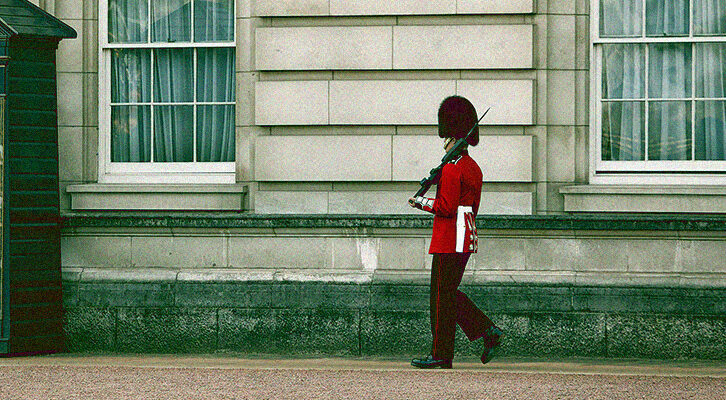Of Sisterly Bonds and Translating the Untranslatable
From Jennifer Croft's New Memoir, Homesick
Amy takes a picture of the little red suitcase Zoe uses to run away from home
Zoe runs away from home once or twice a week. She takes the dog and goes and sits beneath the pear tree that every year at the tail end of summer produces inedible pears that their dad picks up and throws away. The pear tree is in between the front yard and the backyard, a no man’s land, where Zoe believes that no one will think to look for her.
She whiles away the 15 to 20 minutes it always takes her to run away from home playing with the plastic animal figurines she has packed and distributing provisions evenly between her and the dog. To the dog she gives the brown treats, which are flavored like lamb and vegetable. For herself she reserves the green treats, which are chicken. The peanut butters they share.
On the side of the suitcase containing the figurines and the Milk-Bones is a little drawing of a girl in front of a white picket fence. Above her float the words Going to Grandma’s.
But the picture Amy takes does not show this, because what interests Amy is the things the suitcase contains. So while Zoe is in the bathroom Amy snaps it open and lays it splayed atop their rumpled constellation-print sheets. She points her Polaroid down but can’t fit it, so she gets on the bed and stands over it, points, and pulls the shutter swiftly with her forefinger.
Of the numerous plastic animal figurines in her collection, Zoe has chosen one elephant and a family of giraffes. Then, in addition to the small box of Milk-Bones, there is a toothbrush, one sock with a friendly-looking shark that prowls the ankle, and a framed five-by-seven photograph, black and white, of Dorothy holding Toto up to her cheek, the two of them gazing off into the distance. The photograph takes up a massive percentage of the space inside the little red suitcase, and Amy wonders why her sister takes it when she runs away from home, since it is just a piece of someone else’s junk they got at a garage sale.
Then Zoe comes back from the bathroom and catches Amy red-handed, still standing over her stuff, and she screams and hollers like a wild banshee until Amy offers her a piece of tropical fruit punch gum.
*

Once in a while there is a word with no translation.
*
Amy takes pictures of everywhere they go
They go to Lincoln, Nebraska, for their family vacation, and Amy takes pictures of the dinosaurs at the Museum of Natural History. Zoe always wants to be in the pictures, and usually Amy says yes, but on occasion, Amy says no. Then Zoe cries until someone else takes her picture in the same spot. Amy on the other hand does not like to have her picture taken and rarely smiles when she is urged to pose.
Amy likes the dinosaurs but not the stuffed owls, which she says are disgusting because they are dead. Amy knows the dinosaurs are dead, too, but it’s different because they’re almost more like rocks. Zoe makes a face when Amy says the word dead or the word disgusting. She sticks her tongue out and scrunches up her little nose.
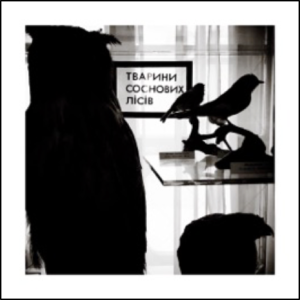
Their other grandparents live in Kansas in between Oklahoma and Nebraska, but their mom says she does not want to visit them on the way back because they’re assholes. Their dad says not to say bad words in front of the girls.
They go to the Porter Peach Festival in Porter, Oklahoma, and Amy takes pictures of peaches until the dog runs away, and they all have to chase it. But when they’ve caught it, they all get to eat fresh peaches with vanilla ice cream. Even the dog eats peaches. They are all sweaty and smelly and filled up with sugar. Amy and Zoe and their mother sing camp songs the whole way home until their dad turns on the radio.
At the Tulsa State Fair Amy takes pictures of the roller coaster and the stands selling corn dogs and cotton candy and of Zoe with cotton candy like spider webs in her hair. Zoe cries until their dad buys her some more cotton candy to eat. At the Fair there is a petting zoo where the girls get to feed farm animals, but their mom has to take away the food sometimes because Zoe likes to try the little pellets of alfalfa herself. At these confiscations, Amy howls with laughter, and Zoe’s eyes get wide.
At the real zoo Amy learns to stand like a flamingo, one foot in the crook of the other leg’s knee, and she can stand this way in silence just observing the birds for as long as it takes Zoe to run around the prairie dogs a dozen times.
They ride their bikes in the parking lot at the Tulsa Teachers Credit Union three doors down from their house when it’s not business hours and their dad can take them. Their dad still rides his old green Schwinn with the baby seat on the back even though neither one of them is a baby anymore, and he calls it Gone with the Schwinn to their mom whenever they are heading out. Then they have races around the big post in the middle of the parking lot and from the dumpster to the main doors. You have to get up onto the sidewalk to win.
Lately Zoe keeps talking about getting her training wheels off although Amy keeps reminding her that even with them on she always manages to find a way to topple over, and if she hadn’t had her helmet on she could have killed herself a thousand times or gotten another concussion, and besides, Zoe is only five and a quarter, and Amy is almost eight and a half and just got hers off last year. But Zoe doesn’t care and keeps on talking about it.
Amy always has to remind Zoe repeatedly about everything. Like to drink the rest of her juice and to keep her shoes on and not to water the bonsai in their room so it will not drown like the last one. It is exhausting taking care of young children. Usually their mom and dad are too distracted so Amy does it, even though it leaves her barely any time.
They go to Tahlequah for the Inter-tribal powwow, and Amy takes pictures of real teepees, tall as the sky. The Indians wear leather dresses with leather strings and turquoise beads and feathers and circles that symbolize things. The Indian children get to wear feathers, too. The Cherokees have lots of different symbols to mean different things. Amy wants to learn them all. She begins to invent new symbols for her and Zoe only, so they can write notes to each other without their mother interfering.
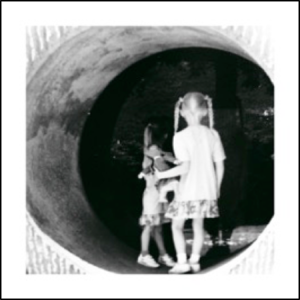
Their mother has told them that once one of the other counselors at Camp Waluhili got bitten by a black widow, and the venom spread so fast they had to cut out part of her leg. So she had a hole in her leg, and she kept secret things inside it, like messages. Now Amy twists this story around. To send and receive secret messages you don’t need to be poisoned or have any particular place. What you need is a secret system, a network of secret shapes.
So she makes Zoe practice drawing the symbols for dog and home and mom and dad and grandparents and hungry and thirsty and Cruella De Vil and Garfield and Raggedy Ann and Raggedy Andy and Target and radio. The symbol for dinosaurs is a dinosaur because Amy can’t think of anything better. Zoe practices diligently at first and then goes off to play with the dog, leaving sloppy scrawlings all over the floor that Amy picks up, emitting a slow sigh she has learned from their grandmother, the gradual deflation of a balloon.
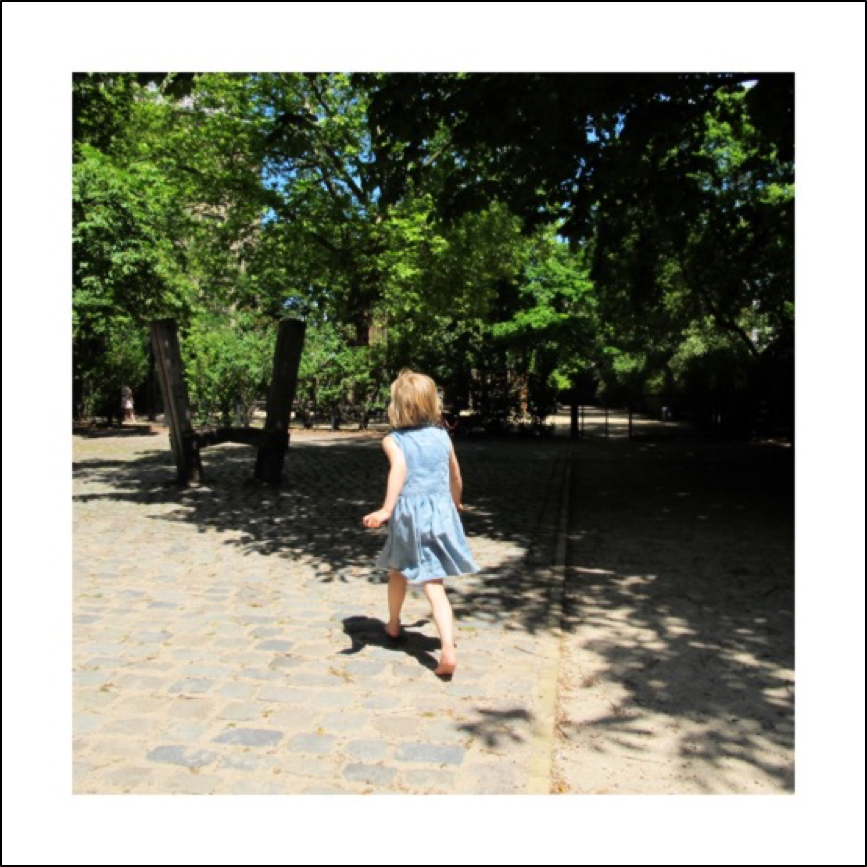
Such untranslatables may be my favorites—although, at the same time, with their bridges always drawn, they also make me feel (to use a word you used to use) forlorn.
*
The night before the girls go back to school their mom tells them what sex is and reads them a story about a woman in a car crash off a bridge
Good Housekeeping says if you crash your car off a bridge you should rescue your husband from drowning if you can, because if you have a husband you can make more children, whereas if you rescue your child you’ll only ever have that one. Their mom thinks about that a lot. What she would do if they got into a car crash off a bridge. The girls begin to practice how long they can hold their breath when they are alone in their room.
*
The girls dance and dance and dance to Paul Simon’s Graceland in the dining room, working themselves up into a frenzy, while their mom makes oatmeal fudgies in the kitchen for them to take for Labor Day to school
Then Zoe, wanting to hear I Know What I Know again, goes and plucks the needle off the record, resulting in a scratch. Amy leaps in and snatches the record away. A scuffle ensues. Zoe bursts into tears. Amy lets the record droop down a little in her hands. Zoe sniffs, purses her lips, and looks back and forth between Graceland and her sister’s face.
Then she lunges forward and pries at the record with all her might until it snaps in half.
In the stunned silence that follows this, before their mother comes in and screams at them that this was a library record and that now they’ll have to pay and go to your room, Zoe looks at Amy, and Amy looks directly ahead, at the two rows of four plates that hang from the white wall. Each plate features a ghost ship, which their mom has explained is when a ship sinks and all its traces disappear into the sea. And it’s like people who die but don’t get buried: the ships turn into ghosts. Sailors see them floating out on the water, aflame. Of the eight plates six of them are half-obscured by bright orange fire.
If Amy could go back a few seconds, she would break the plates with her sister, one by one, rather than the record, which was something they loved and now will never have again.
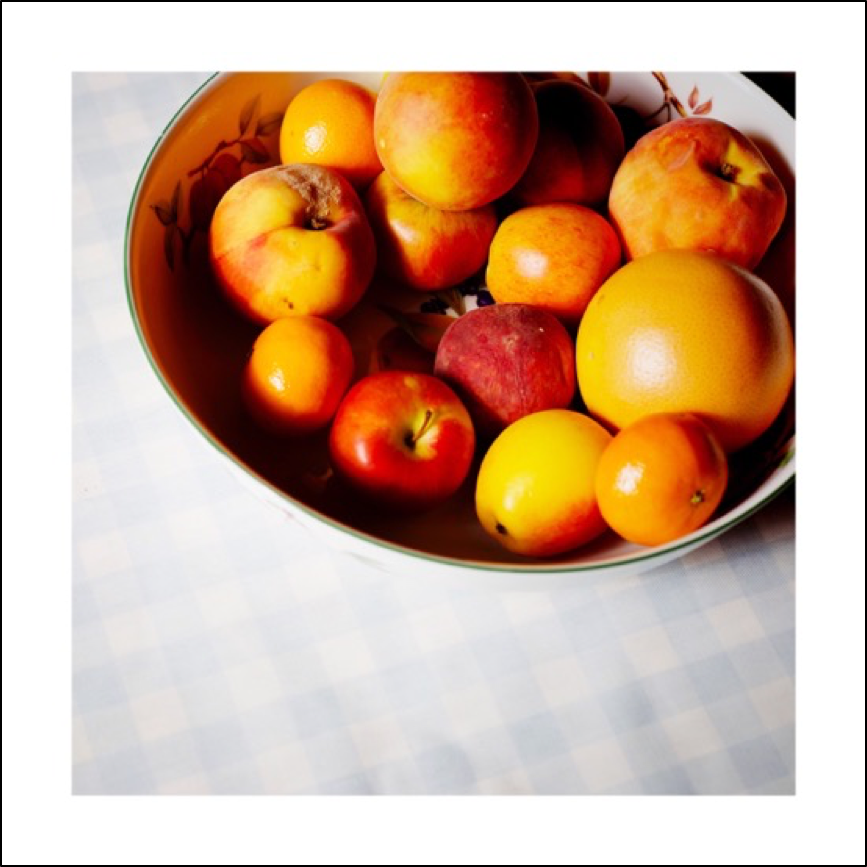
Forlorn—the word you’d cry into the door of our bedroom when I would shut it in your face (although now I wonder where you got it from)—is the past participle of a verb extinct for centuries that used to mean to part with or be parted from, a close relation of the German word verloren, meaning alone and lost and (sometimes) doomed.
*
Amy is the tallest kid in her grade, and the fastest, and the best at math
She comes first during roll call and gets only straight As. Their school uses a Japanese kind of math called Kumon that lets you do however many problems you want in an hour. Amy likes to do a lot of problems without making mistakes. All the other kids disappear when she starts doing her Kumon. All she is aware of is those numbers. She loves numbers and letters and practices to improve her handwriting every evening at home.
One day in the middle of long division a hand reaches inside her bubble and attaches itself to hers. Amy gasps without meaning to. She looks up and sees the principal.
Most children dread the appearance of the school principal at their desk, but Amy is so well behaved that it does not occur to her to worry. When the principal asks her to come outside with her please, Amy politely declines. But then when she sees the stunned scandalized eyes of the principal she sets her pencil down.
*
In the back of the ambulance, her sister has been taken over by a ghost
Their mom gets as strong as a superhero and holds her down. Amy and Zoe had always assumed it would be fun to ride in an ambulance or a fire truck or a police car because you would get to go fast and break all the rules and not stop at any lights. But now Zoe isn’t Zoe, and everything is wrong. Zoe throws up but doesn’t know she’s throwing up, so the throw-up just drips down her chin and onto the lavender-colored dress that used to be Amy’s favorite, and the lady who works for the ambulance mops it off her, but Amy fears the towel will scratch her sister’s face.
Zoe’s eyes, always big and brown and sparkly as the campfire, are white, completely gone now. Her whole body jerks to one side at a rhythm that is not a human rhythm. Amy screams, Zoe, Zoe, Zoe, but Zoe isn’t there. Their mom gets angry and says to shut up because she’s making everything worse. Then every fiber of Amy’s body screams, in silence. Zoe, Zoe, Zoe.

They say the Portuguese saudade is a springy double helix of bereavement and relief over a missing person, place or thing (although they also say they can’t really explain it using words besides saudade).
*
The ambulance takes them to the pink hospital by their grandparents’ house
Amy recognizes it when they all pile out. This isn’t where they went the last time, and this time Zoe and their mom run away into a secret room where the nurses won’t let Amy go. Amy is told to sit and wait.
Amy sits and waits. She tastes like salt, and the wet neck of her t-shirt sticks to her skin. She squeezes and unsqueezes her hands in her lap. She looks around and sees the room is full of dirty people yellowed by the light, not sitting up straight. She would like to go look for her sister, but she is scared that if she doesn’t sit and wait they’ll never let her see her sister again. She looks down at her hands, whitened at the knuckles, splashed. The old man sitting across from her begins to cry, and Amy’s own eyes dry up, and she would like to hold the old man’s hand, but she is scared he might have germs and scared that if she doesn’t sit and wait she’ll get in trouble, and then they’ll never let her see her sister again.
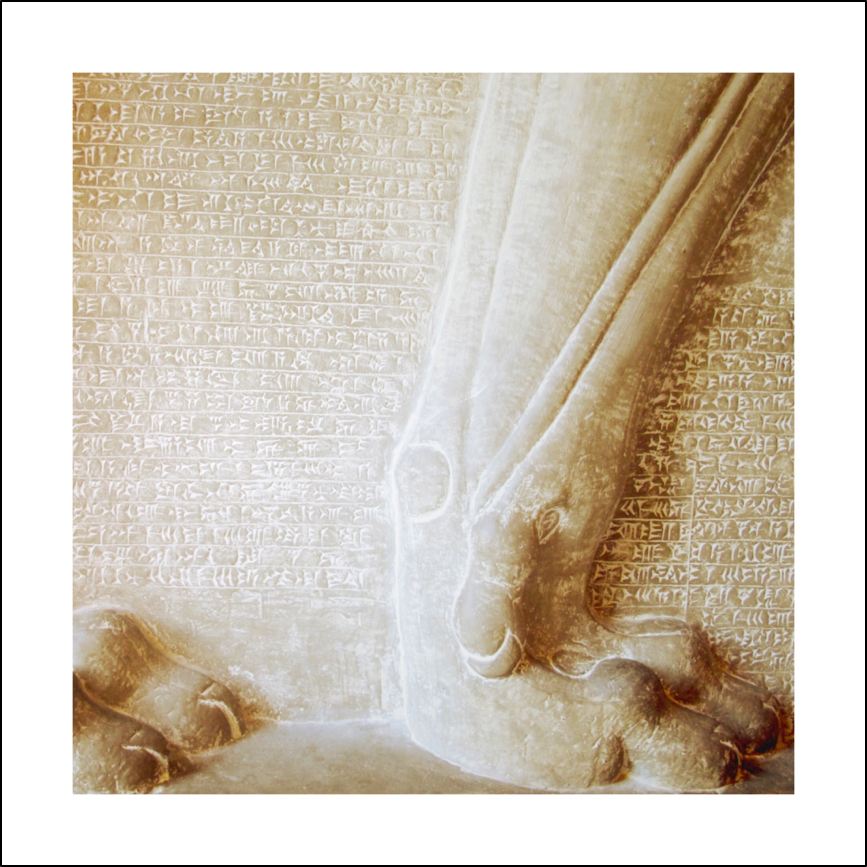
And there is no single word in any other language that means the same thing as the Welsh hiraeth, which I’m told is a refusal to surrender what has already been lost (akin, but not identical, to homesickness).
*
Amy knows exactly what she would do if they got into a car crash off a bridge
She would unbuckle her sister’s seatbelt and then unbuckle hers as she was simultaneously rolling down the window on her side of the car. Then they would swim out the window holding hands until they got to the top of the river. If it is winter Amy knows for a fact that she can simply kick through the ice because there is never all that much in the middle of the river, only around the edges.
____________________________________

From Homesick by Jennifer Croft. Published by Unnamed Press. Featured with permission of the publisher, Unnamed Press. Copyright © 2019 by Jennifer Croft.














